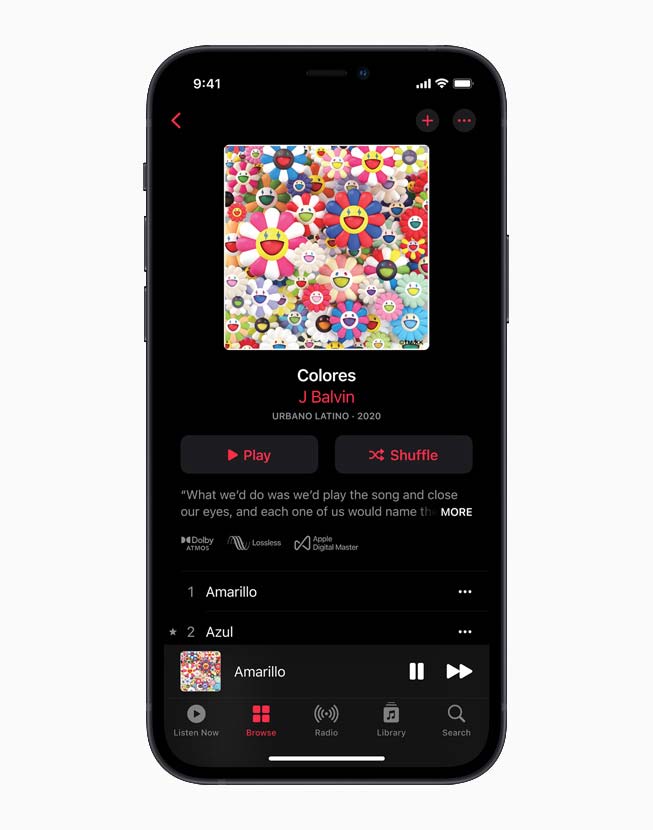Apple has announced that Apple Music is bringing Spatial Audio to its platform, and making its entire catalog available in Lossless Audio.
In a bid to make the listening experience on Apple Music better, Apple is announcing two new features in its music streaming platform – Spacial Audio and Lossless Audio.
Both features will be available to all Apple Music subscribers next month, at no extra cost.
Related | Unlock Your iPhone While Wearing A Mask Thanks To Your Apple Watch
Spatial Audio with support for Dolby Atmos brings “industry-leading sound quality” to Apple Music subscribers and gives artists the opportunity to create more “immersive audio experiences” for their fans to experience.
Current artists already using the format include J Balvin, Gustavo Dudamel, Ariana Grande, Maroon 5, Kacey Musgraves, The Weeknd, and others, but many others will follow in time.
A revolutionary, immersive audio experience, Dolby Atmos lets artists mix their music in a way that makes it sound like it’s coming from different directions.
“Apple Music is making its biggest advancement ever in sound quality,” said Oliver Schusser, Apple’s vice president of Apple Music and Beats. “Listening to a song in Dolby Atmos is like magic. The music comes from all around you and sounds incredible.”
Users will be able to play Dolby Atmos tracks on AirPods and Beats headphones with an H1 or W1 chip, or built-in speakers in recent iPhone, iPad, and Mac models.
Tracks and albums that have Dolby Atmos will feature a badge to find easily, but Apple Music will curate playlists using the technology as well, to help with discovery.

Apple Music will be working with artists and their labels to create more Dolby Atmos content over time, but at launch, thousands of songs will be immediately available.
In addition to Spatial Audio, Apple Music will also make its 75 million songs available in Lossless Audio which uses a special code to preserve as much as possible from the original audio file the artist intended their audience to listen to.
To start listening to Lossless Audio tracks, subscribers need to update to the latest version of Apple Music and turn on the feature in Settings > Music > Audio Quality. Then, they will choose between connections, like cellular, Wi-Fi, or for download.
Lossless starts at CD quality (16 bit at 44.1 kHz) and goes up to 24 bit at 48 kHz which can be played natively on Apple devices. For audiophiles, Apple Music also offers Hi-Resolution Lossless that goes up to 24 bit at 192 kHz.
Apple Music’s entire catalog will be available in Lossless quality, but it’s not clear whether you’ll be able to listen to Lossless Audio using your $549 AirPods Max or your HomePod mini.
